
Sarah Zielinski wanted to be a marine biologist when she was growing up, but after graduating from Cornell University with a B.A. in biology, and a stint at the National Science Foundation, she realized that she didn’t want to spend her life studying just one area of science — she wanted to learn about it all and share that knowledge with the public. In 2004, she received an M.A. in journalism from New York University’s Science, Health and Environmental Reporting Program and began a career in science journalism. She worked as a science writer and editor at the Journal of the National Cancer Institute, the American Geophysical Union’s newspaper Eos and Smithsonian magazine before becoming a freelancer. During that time, she started her blog, Wild Things, and moved it to Science News magazine, and then became an editor for and frequent contributor to Science News Explores. Her work has also appeared in Slate, Science, Scientific American, Discover and National Geographic News. She is the winner of the DCSWA 2010 Science News Brief Award and editor of the winner of the Gold Award for Children’s Science News in the 2015 AAAS Kavli Science Journalism Awards, “Where will lightning strike?” published in Science News Explores. In 2005, she was a Marine Biological Laboratory Science Journalism Fellow.

Trustworthy journalism comes at a price.
Scientists and journalists share a core belief in questioning, observing and verifying to reach the truth. Science News reports on crucial research and discovery across science disciplines. We need your financial support to make it happen – every contribution makes a difference.
All Stories by Sarah Zielinski
-
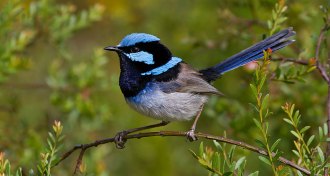 Animals
AnimalsBirds learn what danger sounds like
In just two days, superb fairy-wrens learned to recognize an unfamiliar alarm call as a sign that a predator loomed.
-
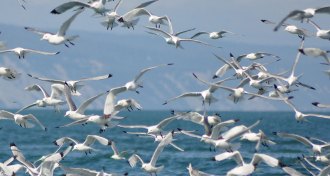 Animals
AnimalsFeeding seabirds may give declining populations a boost
Supplementing the diets of kittiwakes with additional food might give fledglings a head start, a new study finds.
-
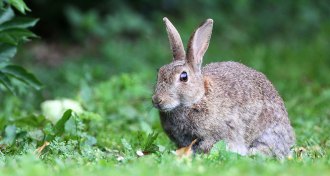 Animals
AnimalsChildren’s classic ‘Watership Down’ is based on real science
The novel ‘Watership Down’ is the tale of a bunch of anthropomorphized rabbits. Their language may be unreal, but the animals’ behavior was rooted in science.
-
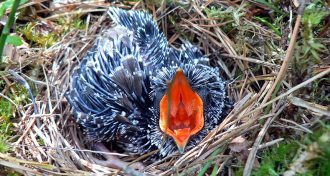 Animals
AnimalsCuckoos may have a long-lasting impact on other birds
Some birds that don’t have to worry about parasites like cuckoos reject eggs that aren’t their own. It might be a legacy of long-ago parasitism.
-
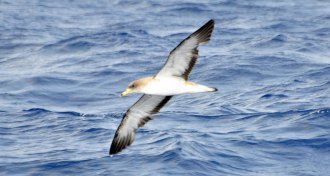 Animals
AnimalsSeabirds may navigate by scent
Shearwaters may use olfactory cues to find islands far across the open ocean, a new study suggests.
-
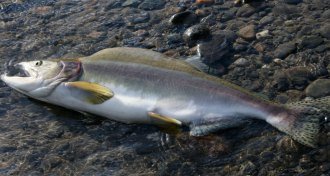 Climate
ClimatePink salmon threatened by freshwater acidification
Ocean acidification gets more attention, but freshwater systems are also acidifying. That’s a problem for young salmon, a new study finds.
-
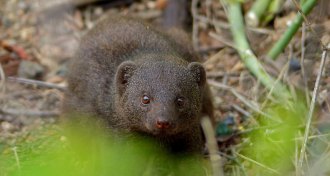 Animals
AnimalsFor dwarf mongooses, handstands aren’t just good fun
Dwarf mongooses may use marks laid down in handstand positions to gather information on rivals, a new study shows.
-
 Plants
PlantsBeauty drives orchids towards extinction
Dozens of species of Asian slipper orchids have been newly classified as threatened or endangered, their numbers driven low by illegal trade.
-
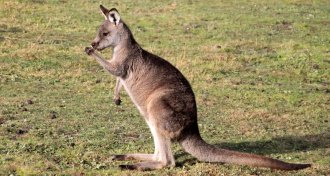 Animals
AnimalsKangaroos are lefties
Scientists find evidence of handedness in marsupials that walk on two, but not four, legs.
-
 Animals
AnimalsWith Tasmanian devils gone, possums come down from the trees
In areas where Tasmanian devils have largely disappeared, their prey is becoming more adventuresome, a new study finds.
-
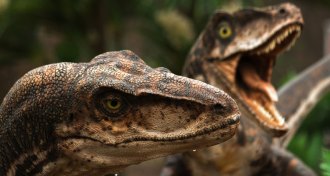 Animals
AnimalsCould the dinos of ‘Jurassic World’ become invasive?
Even if they escaped their island home, the giant reptiles of ‘Jurassic World’ probably wouldn’t survive on the mainland. But the movie’s plants are another story.
-
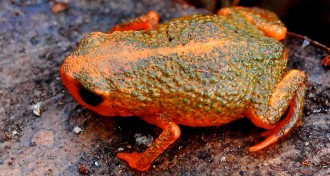 Animals
AnimalsNewly discovered tiny frogs live on islands in the sky
Scientists find seven new species of frogs in southern Brazil, and more could be waiting, they say.